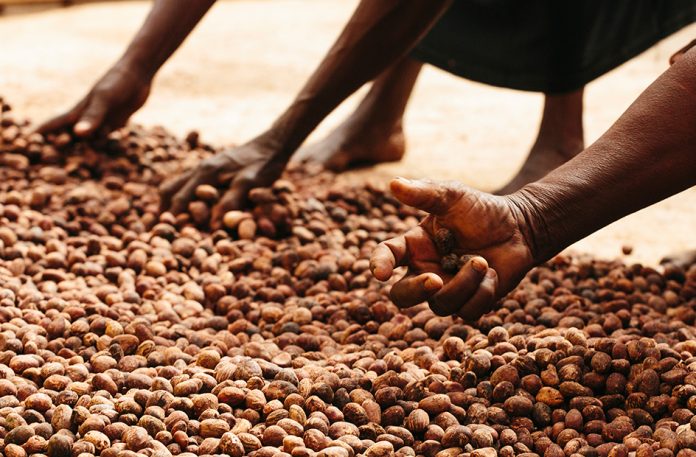By Samuel SAM
The Ghana Shea Employers Association (GSEA) has renewed calls for an immediate ban on the export of raw shea nuts, citing the growing threat to local processors, value chain actors and the broader economy in Northern Region.
At a press briefing held in Tamale, the Association appealed for government and policymakers to implement urgent interventions to halt the export of raw shea nuts, which they say are essential to sustaining local production and creating jobs.
“We are pleading with government to stop exportation of the raw nuts meant to feed our local processors. Foreign investors can still participate in the sector, but they must be encouraged to establish processing factories in Ghana to promote employment and boost domestic revenue,” said Faiza Duut Majeed, Communications Officer-GSEA.
She was supported by GSEA President Rabiatu Abubakar, Board Member Rita Dampson and other stakeholders across the shea value chain.
Export threatens domestic industry
The Association decried the increasing presence of foreign buyers in rural communities who are purchasing raw shea nuts in bulk for export, leaving local processors without access to raw materials.
According to GSEA, this practice is undermining the local shea industry and pushing small-scale processors out of business.
The Association noted that countries such as Togo, Benin, Burkina Faso and Nigeria have already instituted bans on raw shea nut exports to protect their domestic industries. Ghana, they warned, risks being left behind if no action is taken.
Price volatility and market disruption
The surge in foreign demand has contributed to significant price increases at the community level. A bowl (2kg) of shea nuts which sold for GH¢12 in 2023 rose to GH¢14 in early 2024 and currently sells for GH¢60, driven largely by middlemen and unregulated market activity.
“This situation is negatively affecting pickers, processors and local businesses, many of which are women-led. The resulting market distortion is collapsing the local shea economy,” the Association lamented.
Environmental and socio-economic consequences
GSEA also raised alarm over environmental degradation linked to unregulated harvesting. They noted that continued deforestation, rampant bushfires and destruction of shea tree farms are not only threatening biodiversity but also accelerating climate change.
“When raw nuts are exported, we lose up to 300 percent of the potential value that could be added locally. This translates to lost jobs, reduced industrial growth and forfeited tax revenue -resources that Ghana desperately needs for national development,” said the Association.
They added that women, who account for over 90 percent of the shea nut collection workforce, remain trapped at the value chain’s lowest end.
This perpetuates poverty and limits their opportunity for upward economic mobility.
Recommendations
GSEA urged government to take bold, forward-looking action to protect the shea industry’s future. Their key recommendations include:
- Imposing an immediate ban on raw shea nut exports to secure supply for local processors.
- Investing in local processing infrastructure through grants, low-interest loans and public-private partnerships to boost competitiveness.
- Empowering women through inclusive policies, improved access to finance, skills training and technology.
- Enforcing regulations on harvesting practices and launching reforestation initiatives to preserve shea tree populations.
“This is not just an economic decision – it is a moral responsibility. The shea belt across Ghana’s northern savannahs represents not only an economic lifeline but also a symbol of cultural identity and resilience against climate change,” the Association stated.
They concluded by calling for national unity in reclaiming the domestic shea sector’s narrative – which empowers women, builds strong local industries and safeguards the environment for future generations.










